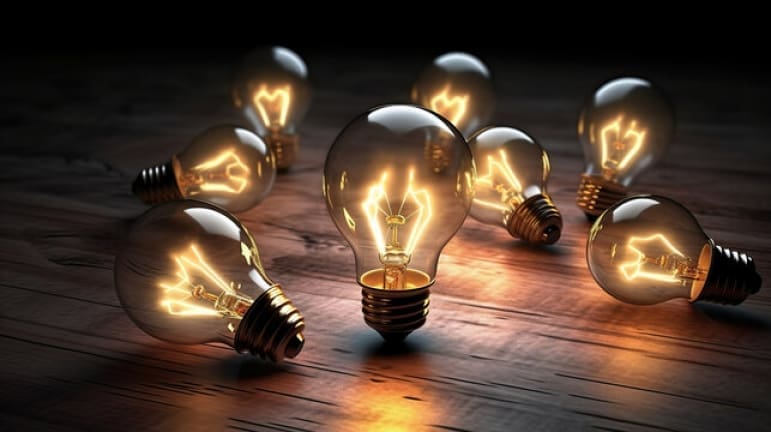A prohibition on the majority of traditional light bulbs reignites a cultural dispute between regulatory efforts to reduce energy consumption and the uniquely American impulse to do as one pleases within the home.

The response to the moratorium on incandescent bulbs was more of a murmur than a war cry.
“Thomas Edison brought the incandescent light bulb to the masses, and in 2023 Joe Biden banned it in America,” Republican Party of New Mexico officials wrote in a tweet. “The Biden administration’s government overreach continues.”
Other critics were more concerned with how the quality of light affected their quality of life: “I frequently stay up late at my workstation, and the lamp’s warm radiance is like a companion as I read and write. Ugh. Joseph Massey, a self-described “not woke” writer, tweeted, “There are people in power who are committed to sucking all joy from the world.”
The owner of Lightbulbs.com, Paul McLellan, whose family has sold lighting since the 1950s, stated that the decision was better for the environment but somewhat detrimental to sales.
Mr. McLellan, whose 15 call-center employees have become lighting therapists for distressed callers overnight, stated, “We’ve been trying to spread the word, but nobody is talking about it.” “We are using these small heaters to light our homes and businesses.”

Mr. McLellan added that he had to concur “logically” that the bulbs “are not environmentally friendly,” despite lamenting the loss in sales he attributed to what he described as a poor implementation by the government and media. Nonetheless, he correctly described the narrative of the disappearing light bulb as a “bipartisan issue.”
President George W. Bush signed the Energy Independence and Security Act of 2007 into law sixteen years ago. The law did not prohibit the sale of incandescent light bulbs, but it did mandate that bulbs consuming between 40 and 100 watts of electricity progressively become more energy effective.
Just prior to President Barack Obama’s January 2017 departure from office, his administration enacted additional regulations regarding several categories of incandescent bulbs.
Then came President Donald J. Trump, who revoked the Obama administration’s regulations and added a personal remark about his distaste for energy-efficient illumination.
In 2019, Donald Trump incorrectly stated, “They stole our light bulb.” “I desire incandescent lighting. I want to appear healthier, all right? I want to appear better for less money. This makes sense, yes? You pay much less money, and you appear considerably superior.”
According to specialists, new LED bulb models cost more initially but last longer and consume less electricity, resulting in a reduced monthly utility bill.
In another speech, Mr. Trump stated that energy-efficient light bulbs always made him “look orange”; however, this was merely his opinion.
President Biden, who was under pressure to take additional regulatory action to protect the environment, announced new rules to rescind Mr. Trump’s repeal of the regulations. The Energy Department announced last year that incandescent bulbs would be progressively phased out of production and sale by 2023. Recent polling indicates that the majority of Americans are in favor of the federal government imposing stricter efficiency standards on appliances and buildings.

In January, according to a timeline released by the department, manufacturers were instructed to cease production of the bulbs. On Tuesday, retailers such as Mr. McLellan were instructed to cease selling them.
In a statement released on Tuesday, the Republican National Committee referred to incandescent bulbs as the latest victim of “Biden’s unhealthy obsession” with reducing carbon emissions.
Not all versions of the bulbs will be outlawed, but it will become increasingly difficult to acquire everyday versions, such as those that provide flattering lighting for the dining room or study. As the lumen, a unit associated with LEDs, becomes the standard, it may become more difficult to find bulbs by wattage. CNN reports that some incandescents, including insect lamps and “odd sized” bulbs, will continue to be available.
According to Mr. McLellan, one of the concerns of retailers is that unsold bulbs will have to be disposed of, presumably in landfills: “If you’re truly concerned about the environment, halt production and allow distribution to sell through,” he advised.
Unauthorized to speak publicly, an Energy Department spokesman stated on Tuesday that the agency’s “enforcement office is committed to enforcing the agency’s regulations in a fair and equitable manner” and urged retailers to contact the agency regarding “flexibilities with their inventory.”

